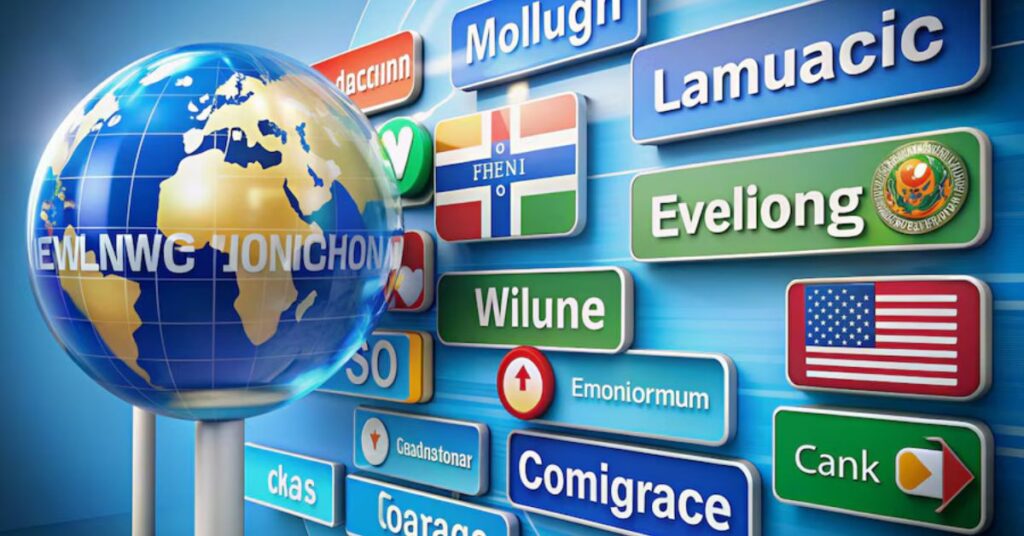Translation is an essential aspect of communication in a globalized world. In professional translation, tools and skilled professionals ensure accuracy and cultural relevance in transferring information from one language to another. One term that is often encountered in the realm of translation is “переводчимк,” which relates to the role of a translator or interpreter, particularly in Russian-speaking contexts. Understanding the significance of “переводчимк” sheds light on how translation professionals bridge language barriers. This article delves into the essential aspects of “переводчимк,” its responsibilities, and its importance in modern-day translation services.
What is “Переводчимк”?
“Переводчимк” is a Russian term for a translator, a person responsible for converting text or speech from one language to another. In professional translation, a “переводчимк” holds an important role in ensuring that communication across different languages is effective and accurate. The job entails more than just literal translation—it often requires an understanding of context, tone, and cultural nuances.
The Growing Need for Professional Translators
In today’s interconnected world, businesses, governments, and individuals need clear communication to work together. With over 7,000 languages spoken worldwide, the demand for skilled translators or “переводчимк” has skyrocketed. Whether it’s for legal documentation, marketing campaigns, or technical manuals, companies and institutions require services that go beyond automated translation tools to convey messages in a culturally appropriate and accurate manner.
Key Responsibilities of a “Переводчимк”
The responsibilities of a “переводчимк” are vast and include translating written documents, interpreting spoken conversations, and even localizing content for specific audiences. Let’s explore some key duties:
Translating Written Texts
A significant part of a “переводчимк’s” role involves translating texts from one language to another. This may include books, articles, manuals, and official documents. Precision is crucial since a minor mistake can lead to misunderstanding or misinformation.
Interpreting Spoken Language
Beyond written texts, many “переводчимк” also work as interpreters. This involves translating spoken language in real-time, whether during meetings, conferences, or live broadcasts. This skill requires quick thinking and a deep understanding of both languages.
Cultural Adaptation
A great translator must also be aware of cultural contexts. This ensures that the translation is not just accurate linguistically but also appropriate for the target audience. The “переводчимк” needs to consider cultural differences, idioms, and societal norms when translating content.
Types of Translators: Exploring Specializations
While “переводчимк” is a broad term, many translators specialize in particular fields, depending on their knowledge and expertise. Below are some of the most common specializations:
Legal Translation
In legal translation, a “переводчимк” specializes in translating contracts, court documents, and legal statutes. The accuracy of translation in legal contexts is critical, as errors can result in severe consequences.
Medical Translation
Medical translation is another specialized area. A “переводчимк” in this field translates medical reports, research papers, and pharmaceutical documents. Understanding medical terminology is essential to avoid any misinterpretations that could affect a patient’s treatment.
Technical Translation
Technical translators handle manuals, instructions, and other industry-specific materials. The precision required in translating technical documents means that the “переводчимк” must be familiar with technical jargon and concepts within that particular industry.
Literary Translation
Literary translation involves translating books, poetry, and other creative works. The task here is not just to translate the words but also to capture the essence of the original writing style, tone, and cultural references.
Skills Required for an Effective “Переводчимк”
Being a successful “переводчимк” requires more than just fluency in two or more languages. There are several key skills that set professional translators apart:
Language Proficiency
A “переводчимк” must have a deep understanding of both the source and target languages. This includes a strong vocabulary, an understanding of grammar, and familiarity with dialects.
Cultural Awareness
Understanding cultural differences is vital for effective translation. A good “переводчимк” must ensure that the translated text resonates with the target audience, accounting for societal norms and customs.
Attention to Detail
The smallest error can change the meaning of a text. A “переводчимк” needs to pay close attention to detail, ensuring that each word is translated correctly and that the message remains clear and precise.
Time Management
Translation projects often come with tight deadlines. Being able to work efficiently under pressure is an essential skill for any “переводчимк.”
Research Skills
Many translation tasks require the “переводчимк” to research unfamiliar terms, concepts, or industries. Strong research skills help ensure the translation is accurate and relevant.
Challenges Faced by a “Переводчимк”
Translation may seem straightforward, but it comes with its own set of challenges:
Maintaining Original Meaning
One of the biggest challenges is retaining the original meaning of the text. The “Переводчим-к” must ensure that the translated text conveys the same message, emotion, and intent as the original.
Handling Industry-Specific Terminology
Each industry has its jargon, and translating this technical language can be difficult, especially in legal, medical, or technical fields. A “Переводчим-к” must be well-versed in these terms to avoid any inaccuracies.
Dealing with Ambiguities
Language is full of ambiguities, such as idiomatic expressions or phrases that don’t translate directly into another language. A “Переводчим-к” must creatively interpret these to maintain meaning without distorting the original message.
The Importance of Human Translators in the Digital Age
With the advent of artificial intelligence and machine learning, automated translation tools are widely available. However, human translators, especially skilled “Переводчим-к,” remain indispensable. Machines can quickly translate words, but they often lack the ability to understand context, emotion, and cultural nuances that are crucial in professional translation.
Conclusion
In a world where communication across languages is more important than ever, the role of a “переводчимк” is indispensable. These professionals bring not only linguistic expertise but also cultural understanding and precision that technology cannot yet fully replicate. Whether working in legal, medical, technical, or literary fields, the “Переводчим-к” plays a vital part in bridging language barriers and ensuring that information is accessible to all.
FAQs
- What does “переводчимк” mean?
“Переводчим-к” is a Russian word for a translator, someone who translates written or spoken language from one language to another. - What are the main responsibilities of a “переводчимк”?
The primary tasks include translating written texts, interpreting spoken language, and ensuring that translations are culturally appropriate. - What types of translation specializations exist?
There are many, including legal, medical, technical, and literary translation, each requiring specific knowledge and skills. - How do human translators differ from machine translation tools?
Human translators can understand cultural context, tone, and emotion, which machines often struggle to replicate accurately. - Why is cultural awareness important in translation?
Cultural awareness helps ensure that translations are appropriate and resonate with the target audience, preventing misunderstandings.







